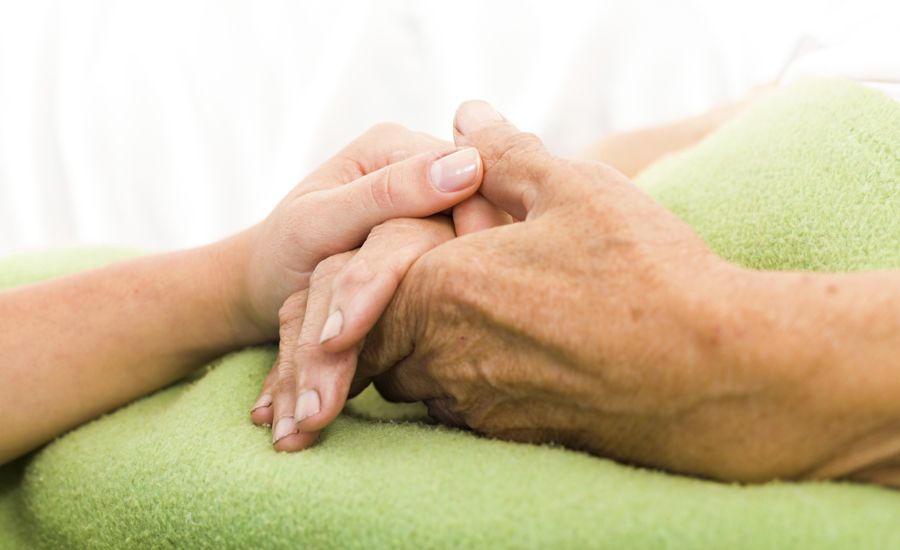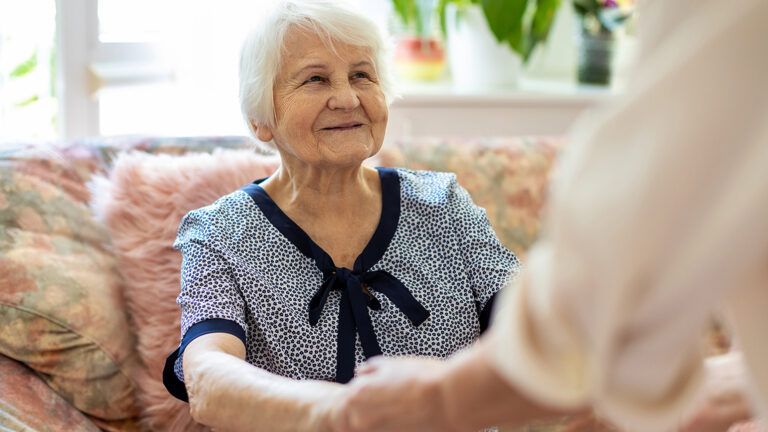As Kim Campbell discovered with her husband, Glen, the later stages of dementia can be the hardest. Not only does your family member need extensive daily care, but a severe decline in communication skills and memory, along with personality changes, can make it feel as if you’ve lost the person you love.
Research shows that even in late-stage dementia, the essential part of the self remains. You can connect with loved ones by engaging their spirit and their senses. Home Instead Senior Care has developed a unique dementia training program for family caregivers in partnership with David Troxel, MPH, a memorycare expert. Troxel has these recommendations:
Play their favorite music.
People with late-stage dementia can feel the joy a beloved song brings. Lyrics and music come from a different part of the brain than speech, so they may still be able to sing a familiar tune (even if they’re not country stars like Glen Campbell). Try music that goes back to their youth.
Take them out for fresh air and sunshine.
Being in nature is lifeaffirming. It provides sensory stimulation and helps people feel a part of the larger world around them.
Reassure them through touch.
Rubbing lotion into their skin, brushing their hair, giving a gentle massage or a simple hug can provide the human connection that language may no longer convey.
Have a friendly cat or dog visit.
Often seniors who are noncommunicative will light up in the presence of a pet (their own or someone else’s). Petting or just being with a furry friend can ease anxiety and agitation in a person with dementia.
Nourish your loved one’s faith.
“People with Alzheimer’s are in the moment, not worrying about their to-do list,” Troxel says. “That opens them up to more of a spiritual connection.” Sing a hymn together. Read a favorite prayer or Bible passage. See if someone from their church or synagogue can observe rituals with your family member at home.
Get support.
You will need a break. Consider hiring a professional caregiver trained in dementia care. To find these services in your area, contact Home Instead Senior Care at (866) 996-1085 or homeinstead.com/guideposts. For a local Alzheimer’s caregiver support group, search alz.org. For more tips and resources for family caregivers, including free training workshops, visit helpforalzheimersfamilies.com.
Read Kim Campbell’s story about caring for her husband, Glen.






